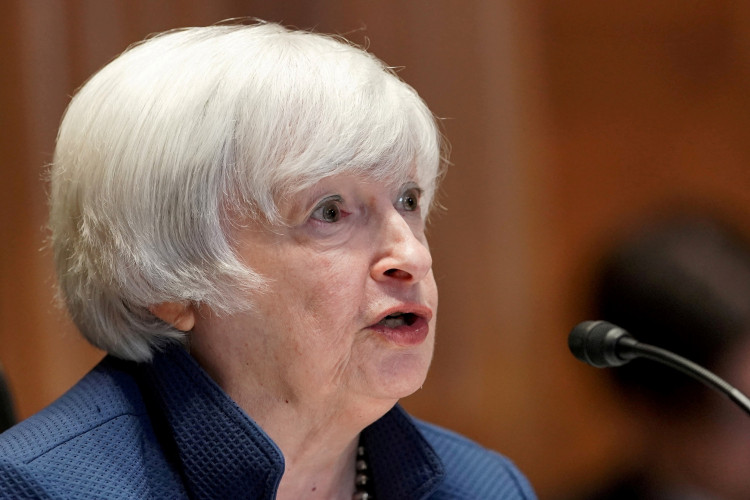U.S. Treasury Secretary Janet Yellen called on the United States and Europe to respond to China's industrial overcapacity in a "strategic and united way" to protect manufacturers on both sides of the Atlantic. During a visit to Frankfurt on Tuesday, Yellen stressed the importance of the U.S.-European alliance in addressing the challenges posed by China's economic policies and excess industrial capacity.
In her remarks, Yellen highlighted the shared concerns among G7 finance ministers regarding China's efforts to dominate clean energy industries. While she noted that detailed coordination on trade actions might not be necessary following the imposition of steep U.S. tariffs on Chinese goods, she emphasized the importance of communicating with China as a group. "Given that many countries share this concern, it's more forceful to communicate to China as a group," Yellen said.
The Treasury Secretary warned that China's industrial policies, although seemingly remote, could threaten the viability of businesses in both the U.S. and Europe, as well as the industrial development of emerging market countries. "If we do not respond strategically and in a united way, the viability of businesses in both our countries and around the world could be at risk," she cautioned.
Last week, the Biden administration announced steep new tariffs on a range of Chinese products, including electric vehicles (EVs), solar products, semiconductors, battery parts, and steel. Yellen had previously warned Chinese officials during a trip to Guangzhou and Beijing in April that the U.S. would not accept their excess production of these goods, which could flood global markets with cheap exports.
In subsequent remarks at the TechQuartier technology and finance incubator in Frankfurt, Yellen emphasized that Chinese production in these sectors significantly exceeded global demand, posing a threat to the development of clean energy industries worldwide. She reiterated that the Biden administration was taking action to protect U.S. workers and firms from being undercut by "unfair Chinese economic competition."
Yellen also noted that Chinese industrial capacity would be a focus of the upcoming Group of Seven finance meetings in Stresa, Italy. "We want to see healthy green technology sectors, from innovative start-ups to green manufacturing factories, in the United States, Europe, and around the world, not just in China," she stated.
Addressing the issue of frozen Russian assets, Yellen stressed the importance of G7 countries demonstrating a plan to channel substantial aid to Ukraine from the approximately $300 billion in frozen Russian assets. While not every detail of the plan needed to be finalized by the time of the G7 leaders summit in Puglia, Italy, on June 13-15, she emphasized that sufficient agreement was necessary for leaders to seriously consider the proposal.
Yellen also called for the U.S. and European Union to stand together against Russian aggression and Iranian "support for terrorism," including agreeing on a way to unlock the value of the frozen Russian sovereign assets to aid Ukraine. "That's why I believe it's vital and urgent that we collectively find a way forward to unlock the value of Russian sovereign assets immobilized in our jurisdictions for the benefit of Ukraine," she said, adding that this would be a key topic of conversation during the G7 meetings.






